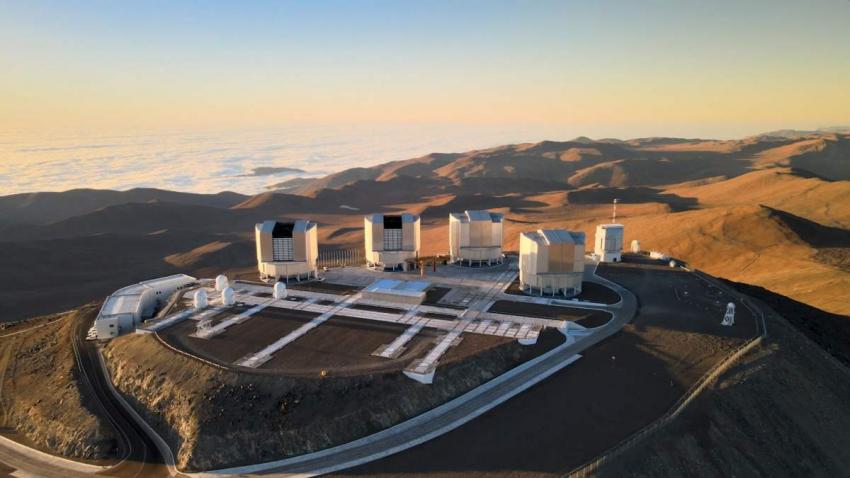The agreement to install the PoET Solar Telescope at the Paranal Observatory was signed by the Director General of the European Southern Observatory and the Directorate of the Centre for Astrophysics of the University of Porto, as the host institution of the observatory. Institute of Astrophysics and Space Sciences.
It is called PoET (Paranal Espresso Solar Telescope, or Paranal Espresso Solar Telescope) and it will be a solar telescope. Made in Portugal, which is expected to come into operation in the summer of 2025. The agreement for the installation of PoET at the European Southern Observatory (ESO) Paranal Observatory (Chile) was recently signed by the Director General of ESO and the Observatory Management. The Centre for Astrophysics of the University of Porto (CAUP), as the host institution of the University of Porto Centre for Astrophysics and Space Sciences (Amnesty International)..
Nuno Cardoso Santos (IA and Department of Physics and Astronomy (DFA) of the Faculty of Science of UPorto), principal investigator of PoET, comments: “Signing the contract with ESO was a fundamental step in the development of the FIERCE project, funded by the European Research Council (ERC), with funds jointly managed by CAUP, the Faculty of Science of the University of Porto and the Association for Research and Development of Science (FCiências.ID)”.
The FIERCE (Finding Exoplanets: Addressing the Challenges of Stellar Activity) project seeks to address the problem of stellar noise from a new angle, a noise that greatly limits the search and characterization of other planets in the universe.
Alexandre Cabral (IA and Faculty of Science, University of Lisbon), PoET Project Director, comments: “PoET is being developed entirely by Portugal, both at the hardware and software level, and will be scientifically driven by AI. This development results from the capacity that the IA toolkit has acquired over the past decade, strengthened by participation in several ESO tools. It is a milestone that IA has always desired, and which will certainly lead us to future international collaborations on this topic.
“PoET will allow us to observe the Sun and inject its light into ESO’s ESPRESSO spectrograph, an instrument developed in part by the IA team,” explains Nuno Santos, also a full professor at FCUP. “By doing so, PoET will give us access to unique data about our star that no other telescope in the world can obtain. In this way, our star can be used as an example to better identify and understand the sources of noise that affect data obtained from other solar-type stars.”
PoET is already in the final design phase, with construction of the dome at the Paranal Observatory scheduled to begin later this year, with the telescope planned to be installed before next summer. Although physically located at the Paranal Observatory, PoET will be operated remotely from IA.
In parallel, the internal audit team is already preparing for the scientific exploration of the data to be collected. This involves many researchers and PhD students from diverse fields, from exoplanet research to solar and stellar physics. “We hope to be able to find answers to the various challenges at the interface of these different fields,” says Nuno Santos.
The IA strategy for the search and study of exoplanets, currently fully implemented with the ESPRESSO spectrograph and the CHEOPS space mission (ESA), will continue over the next few years. The results of the FIERCE project will be essential for the success of future space instruments and missions, with a strong involvement of AI, aimed at discovering and characterizing other terrestrial planets, such as the PLATO and ARIEL space missions of ESA, with launches planned, respectively, for 2026 and 2029, and the installation of the ANDES spectrograph, scheduled to come into operation in the early 2030s, when it will be installed on the largest next-generation telescope, ELT (ESO).
Institute of Astrophysics and Space Sciences

“Coffee trailblazer. Social media ninja. Unapologetic web guru. Friendly music fan. Alcohol fanatic.”


